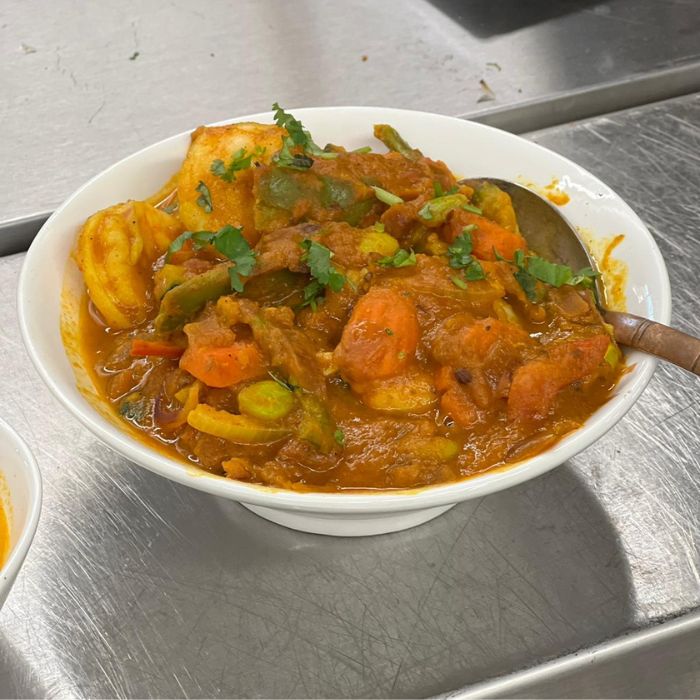The name ‘veg jalfrezi’ is self-explanatory declaring it to be a vegetarian dish. But it also has its non-vegetarian variations that can be prepared with chicken, mutton or fish. Jalfrezi has won over the hearts of the Indians and the foodies all over the world since its creation.
Different People, Different Taste
Every Indian restaurant in London has its own variation and cooks it differently with different ingredients. Even, Jamie Oliver has included a veg jalfrezi recipe made of beans in his Jamie’s Food Revolution cookbook. Jamie Oliver and other British chefs too have included its veg and non-veg versions in their recipe books. Renowned British-Asian chef, Atul Kocchar has a duck version in his recipe book Atul’s Curries of the World. In his book, he has discussed the misconception some Brits have about Jalfrezi. Jalfrezi is commonly misunderstood as the level of heat in which the curry is cooked. Another famous chef, Madhur Jaffrey has a beef version of it in her cookbook At Home with Madhur Jaffrey: Simple, Delectable Dishes from India, Pakistan, Bangladesh, and Sri Lanka.
Origin of Jalfrezi

Jhalfrezi is a curry that originated in British India and was popularised throughout the country and in the other parts of the world by the famous Indian and British Chefs. The dish is prepared with the main ingredient like paneer, meat, fish or veggies and stir-fried over high heat with veggies and finally served in a spicy, thick sauce that contains chilies and onions. Other common ingredients are tomatoes and bell peppers.
Ingredients of Veg Jalfrezi
In India, Jalfrezi is prepared with a variety of spices and vegetables. The main ingredients of Veg Jalfrezi are paneer, green peas, tomato, carrot, cauliflower, garam masala, capsicum, chilly, vinegar, sugar, fresh cream, ghee or oil, garlic, tomato puree, cumin seeds, ginger, turmeric, and salt.
Some Facts about Jalfrezi
- A 2011 survey reports ‘Jalfrezi’ as the most popular Indian dish in the UK and other South Asian restaurants.
- Jalfrezi recipe appeared in British Indian cookbooks as an easy way of using up the leftovers by deep frying them with onion and chili.
The word originated from colloquial Bengali and Persian words. Jal is a Bengali word that means ‘spicy’ and porhezi is a Persian word that means ‘suitable for diet’.
